Families tout voucher success as test scores spark doubt and critics worry over expansion
- Oops!Something went wrong.Please try again later.
Alex Tyler’s smile glows with confidence as she walks down the halls of Lighthouse Christian School in Antioch.
Alex, a senior, plays soccer and volleyball and leads the worship team for Lighthouse’s school chapel. Her favorite subject is English. After graduation and college, she wants to go to law school and later practice immigration or family law.
Alex has lived most types of educational experiences: before enrolling at Lighthouse, she attended public school and was homeschooled. She moved to Nashville with her family from Rochester, New York five years ago.
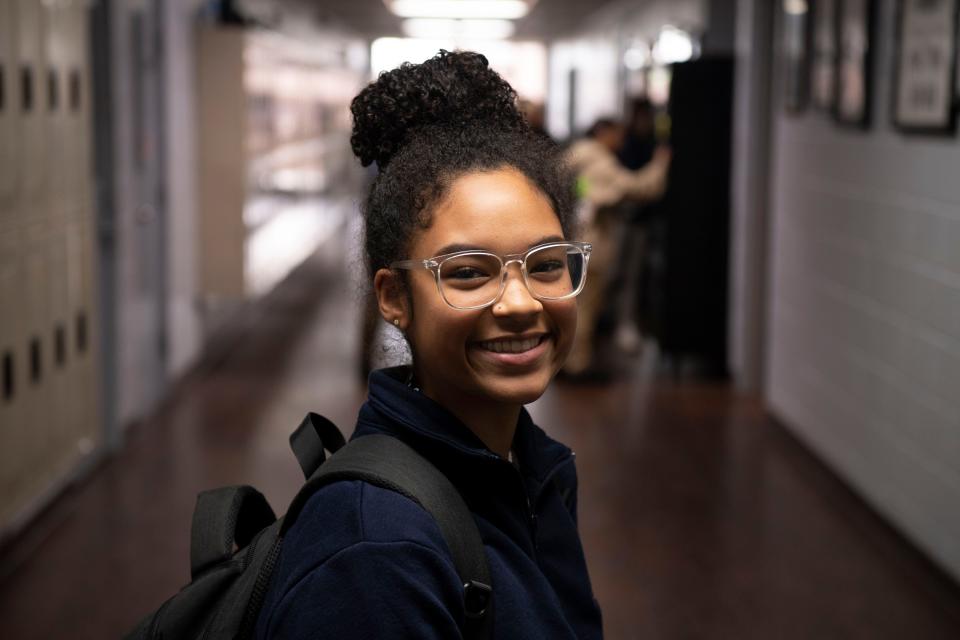
“Where I live now, I’m zoned for a public school that my dad definitely didn’t want us to go to whatsoever,” Alex said. “My dad wanted us to get the best education that we could find.”
Lighthouse is just the right fit for her. But she wouldn’t be able to be there without a state program: Education Savings Accounts.
Alex is one of more than 2,400 students in three Tennessee counties who are enrolled in private schools with tuition and other expenses paid with public funding through the state’s Education Savings Accounts program this year.
Lawmakers are already talking about expanding the school voucher program statewide next year to make more students eligible ― a move that continues to draw criticism ― and activist groups are already knocking doors to make it happen. The statewide expansion push is bringing the current program back into the spotlight.
Gov. Bill Lee said he supports expanding choices for parents statewide.
"Anytime that we can give parents the option to choose their school for their child, we've done that family a service," Lee told The Tennessean in an interview. "I had the option to make those choices. We should give that same option to parents all over Tennessee and let them decide what's best for their kid."
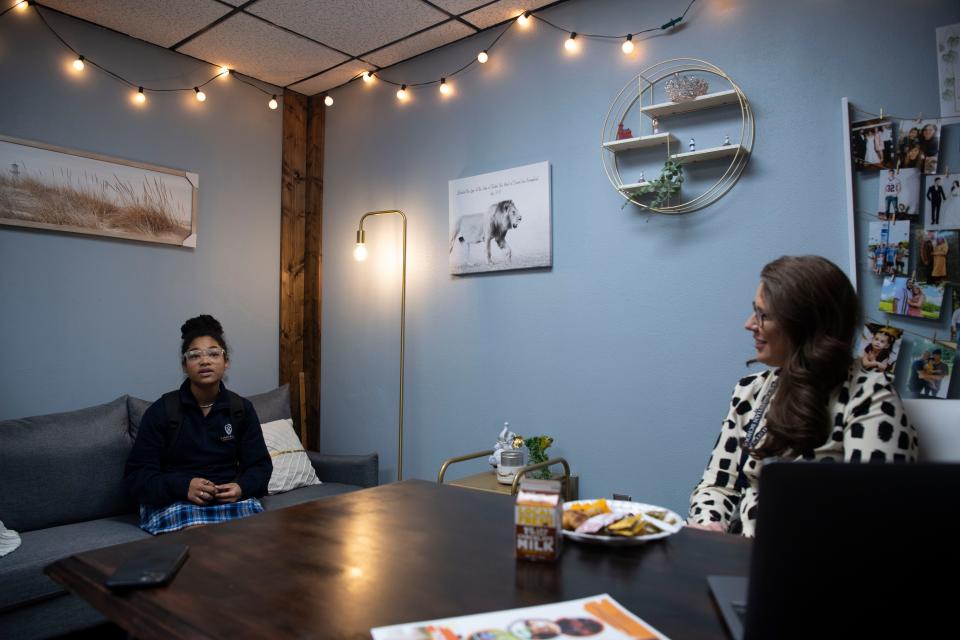
But Lee isn't ready to say yet whether he'll propose a statewide school choice expansion bill next year.
"Nothing's off the table," he said. "There are a number of ideas on the table, and I'll have more to say about that later."
Those who oppose expanding the program have said that not enough data is available yet to determine whether expanding the program is a good idea. Lawmakers already added Hamilton County to the program, and grandfathered in students who had qualified for the program in 2019 when the program first became law.
As participation quintupled this year, there are already many anecdotal stories of families touting student success.
But TCAP test scores for ESA students show participants performed lower than their public school peers during the first year of the program in 2022-23. School administrators say that number may be more indicative of the student population the program is designed to reach ― or administrative hiccups due to the swift rollout of the program weeks before school began.
Feedback from parents for the first year of the program is overwhelmingly positive: 91% of parents who completed the Department of Education's parent satisfaction survey said that they were very satisfied with their student's academic growth this year.
"I’m very grateful for the ESA," Alex said. "It allows kids that don’t have the funds to be able to go to schools like this."
Tennessee's school choice controversy
Tennessee's voucher program offers almost $9,000 in state funds to qualifying low- and mid-income students in Davidson, Shelby, and Hamilton counties to attend accredited private and religious schools of their choice. Funds can be used for tuition, uniforms, technology, and transportation costs.
Narrowly approved by the state legislature in 2019 with just one more vote than needed, the program remains highly controversial. Critics say that the program sends state taxpayer dollars to private and religious schools, taking funding away from already-underfunded public ones.

“There's nothing happening [at the capitol] focused on improving educational outcomes, improving working conditions for teachers, and improving our public schools," House Minority Caucus Chair John Ray Clemmons, D-Nashville, told The Tennessean in an interview. "Everything education-focused up here is designed to steer taxpayer dollars into private hands, whether it be through the charter school commission overreach, overriding local officials and LEAs, whether it be this voucher program.”
Shortly after Lee signed the five-year pilot program into law, it sparked a lawsuit that lasted three years. The Tennessee Supreme Court ruled the program constitutional in 2022, and the injunction blocking the program's implementation was lifted weeks before the start of the 2022-23 school year.
More than 3,400 applicants this year
Lacy Tolar, head of school at Lighthouse Christian Academy, told The Tennessean that when she learned that the program would be allowed to move forward, she got in touch with the Tennessee Association of Christians Schools and with the ESA office at Department of Education to get the program on track.
"A lot of students by that time last year had already picked their schools ― it was three weeks before school started. People weren't really looking to switch schools," Tolar said. “It took a lot of work to do it that fast."
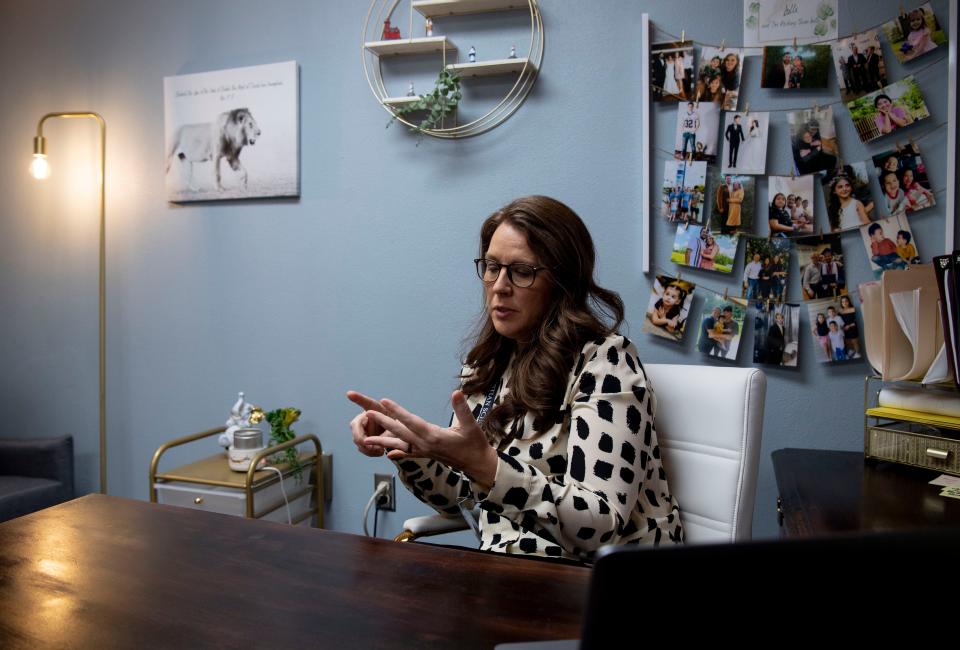
One hiccup for school administrators was the lack of staffing in the state ESA office in the early weeks of the program rollout: because of the years-long injunction, the state had not yet hired staff to administer the program.
Ultimately, Lighthouse enrolled 32 students through the program last year. This year, the number has grown to 107.
Overall during the program's first year, just over 450 ESA students enrolled in private schools in the two participating counties, Davidson and Shelby, according to the Tennessee Department of Education.
According to the latest available parent satisfaction survey results in which 374 of the 450 families identified their race, 56% of respondents identified as Black or African American, 37% identified as white, and 8% identified as another race.
With Hamilton County now added to the program ― and a provision to grandfather in students that had qualified in 2019 ― more than 3,400 students have applied to participate in the program this year and 2,581 are approved to enroll in private schools, according to the department.
Of those, 1,370 ESA students are enrolled in Shelby County, 921 in Nashville, and 290 in Hamilton County.
"It's been a very fast-paced journey," Matt Pollack, head of school at Grace Baptist Academy in Chattanooga, told The Tennessean. "This simply has expanded the opportunity for parents to make a choice and to exercise their responsibility for their children's education."
Grace Baptist Academy has 78 students approved for the ESA program this year, and has appointed a staff member to coordinate the program for the school.
'A huge improvement'
For many students, a new school environment is already paying off.
Landon Warner, in second grade, and his sibling Briley Warner, in fourth grade, are two ESA participants enrolled for the first time this year at Greater Praise Christian Academy in Memphis.
Their mother, Tyra Warner, heard about the program through news reports, and decided to enroll both children at Greater Praise this year after meeting their new teachers in a school interview. They previously attended Cordova Elementary School.
“Greater Praise offered smaller class sizes," Warner told The Tennessean in an interview. "I saw how they were able to engage with both of my children in ways that were different from their previous teachers: they were able to identify with both of my children on different levels that worked best for each one.”
Warner said there has been "a significant change" in her children's grades.
Briley had been struggling in math and science in public school, making Cs and Ds, Warner said. This year, Briley is making As in both subjects. Meanwhile, Landon had been struggling with reading.
“He comes home and reads everything he sees now," Warner said.
TCAP scores show ESA student results in first year
While parents say they are seeing improved grades this year, state test scores from the first group of ESA students show they performed worse than their public school peers last year.
"Data from the program's first year of implementation demonstrates that, compared to the district‐wide averages, more students who are participating in the ESA program are performing at the 'approaching' and 'meets' levels on TCAP," Tennessee Education Commissioner Lizzette Reynolds told The Tennessean.
State law requires students in third grade and higher who participate in the ESA program to take the Tennessee Comprehensive Assessment Program (TCAP) each year to measure achievement and track their growth.
Test scores reflect only a limited sample size of ESA students. In the first year of the program, 248 of the more than 450 ESA students took the TCAP.
Test results show that ESA participants performed lower than public school peers in their county, and below the statewide average.
Just 23% of ESA students met or exceeded state expectations in English Language Arts, compared with 38% of students statewide who reached the same threshold, according to TCAP data for ESA students from the Tennessee Department of Education. The remaining 77% of ESA participants scored below or approaching expectations.
In English Language Arts, the 145 participants in Shelby County slightly outperformed their district peers, with 22.1% of students meeting or exceeding expectations, compared with 21.8% in the district. Of the 100 ESA participants in Davidson County, 24% met or exceeded expectations in ELA, compared with 27.4% of their public school peers who met that threshold.
Math scores were worse. Just 11.3% of ESA participants met or exceeded expectations in math, compared with the 33.7% statewide achievement rate. Just 12.9% of the 101 Davidson County ESA recipients met or exceeded expectations, 8.5% less than their MNPS peers. Shelby County saw a similar rate, with 12.3% of students who met or exceeded expectations in math, compared to Shelby County’s 15% rate.
Due to federal student privacy laws, data to compare participating student’s achievement from previous years is available for only one school: The Collegiate School of Memphis.
Analysis by TDOE found that there is “significant evidence” that the 40 ESA participants enrolled at The Collegiate School of Memphis “made less growth than expected” in both English Language Arts and Math. Students in third through eighth grade entered with an average score of 55% and finished the year with 50% in English Language Arts. In Math, students at the school started the year with 53% achievement and ended the year with 48%.
Data is not available for any school with 10 or fewer ESA students who fall into those parameters, for privacy reasons. The state does not calculate a districtwide average of comparative scores for ESA students, a spokesperson told The Tennessean.
School administrators say test scores don't offer a full picture
Heads of participating ESA schools statewide say that the 2022-23 TCAP test scores do not offer a complete picture of the student experience, student's circumstances, or improvement throughout the year.
"I don't ever think standardized testing gives a full picture of any student, as a parent and as an educator," Tolar said. "Some people just don't test well."
Private school leaders say it will take some time for a student's real progress to show up in test scores.
"Because of the nature of how the program started so quickly, and the number of students who were added to the program at semester it's probably going to take some some years to get a an adequate comparison," said Trent Williamson, head of school at Harding Academy in Memphis. "I don't know that it will ever be an apples-to-apples comparison just because that's just not how we operate."
Williamson said that the school had never administered the TCAP before, and staff encountered a "huge learning curve" learning how to administer the test. Williamson said that Harding Academy, like many independent schools, uses several different instruments and tests to measure student progress throughout the year ― not just one test at the end of the year, like the TCAP.
"Independent schools historically, don't develop curriculum standards or programs based on one test," Williamson said. "We're not going to create a program for third grade based on the third grade TCAP score ― and that's seems to be a public school model." A lot of the stuff that they do surrounds tests."
Harding Academy had 14 ESA students enrolled last year. This year, enrollment jumped to 46.
Tolar said that ESA student scores at Lighthouse are likely much lower because participating students came into the program because they were already struggling academically: during the first year the school primarily received applications from students with learning disabilities or social-emotional needs.
"Parents were looking for something for their struggling child," Tolar said.
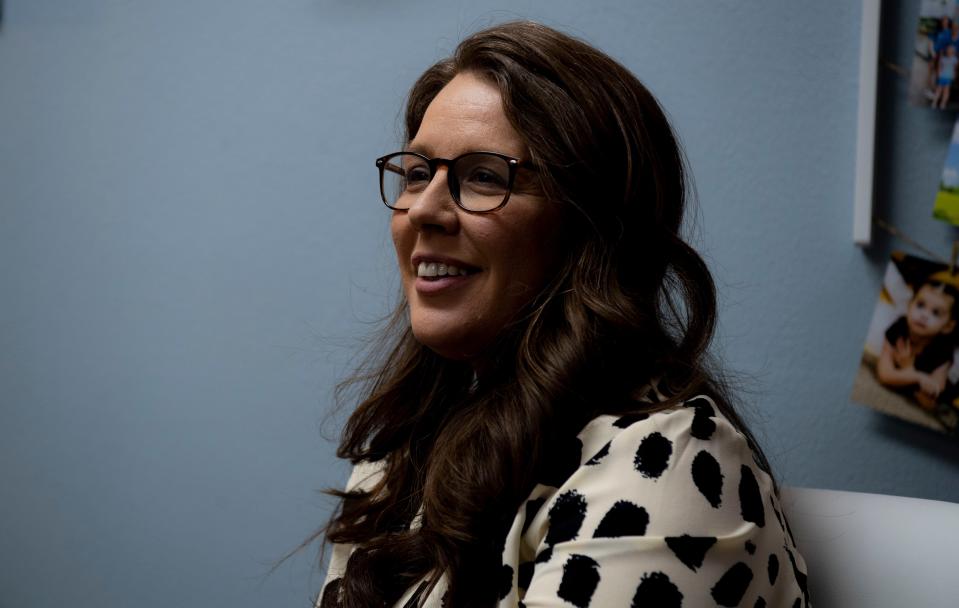
Trish Price, director of education services at Lighthouse, said a better measure of student success through the program would be their overall grades, student retention rates, graduation rates, and college acceptance rates.
"The students that we get who are utilizing that ESA program, are oftentimes students who have struggled in their public school setting in the first place," Price said.
Are parents satisfied?
Parents of students participating in the ESA program are overwhelming pleased with their child's experience, according to results of the department's Parent Satisfaction Survey, obtained by The Tennessean through a public records request.
After the spring 2023 semester, 91% of parents who took the survey said that they were "extremely satisfied" or "very satisfied" with their child's academic growth during the 2022-23 school year. Only 2% of parents reported being "not very satisfied" with their child's academic growth.
"The ESA program provides Tennessee families with the opportunity to choose the right educational path for their child’s unique needs," Reynolds, the education commissioner, told The Tennessean. "In the initial years of implementation, the best indicator of success is the number of families participating and their satisfaction with what it offers their child."
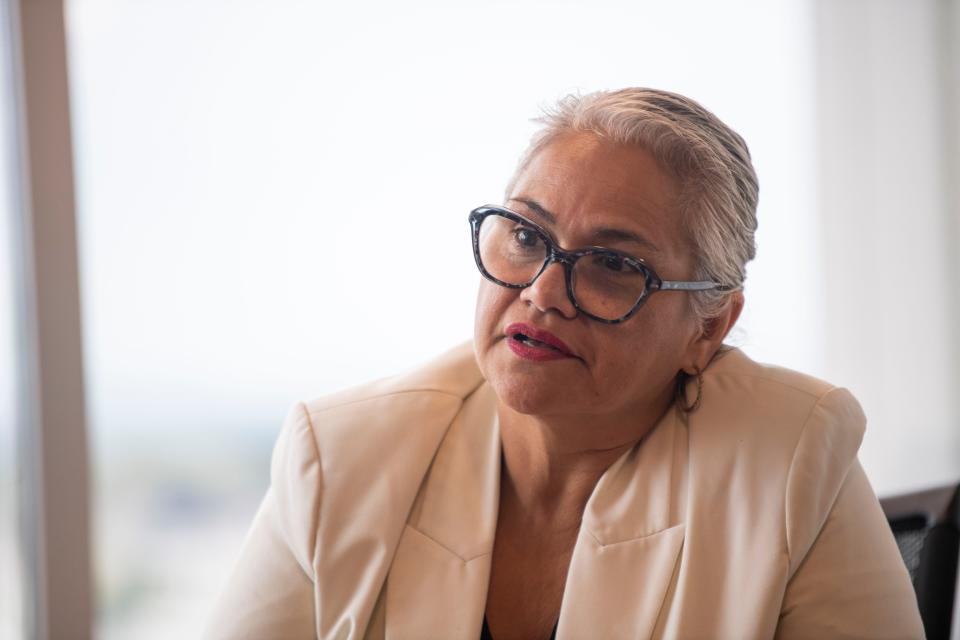
After the spring 2023 semester, 99% of parents surveyed said that they were satisfied with the ESA program overall, and 98% said that they were able to use ESA funds to benefit their child's education.
Statewide school choice?
Whether to further expand the ESA program ― either by expanding eligibility to all counties, or by widening income or enrollment eligibility requirements ― will be a key issue when the legislature returns next January.
House Education Committee Chair Mark White, R-Memphis, has already said that he plans to propose expanding the program to all 95 of Tennessee's counties next year.
"Students are our customers, and we've got to perform for our students," White said. "I'm a big believer in parental choice and educational opportunity."
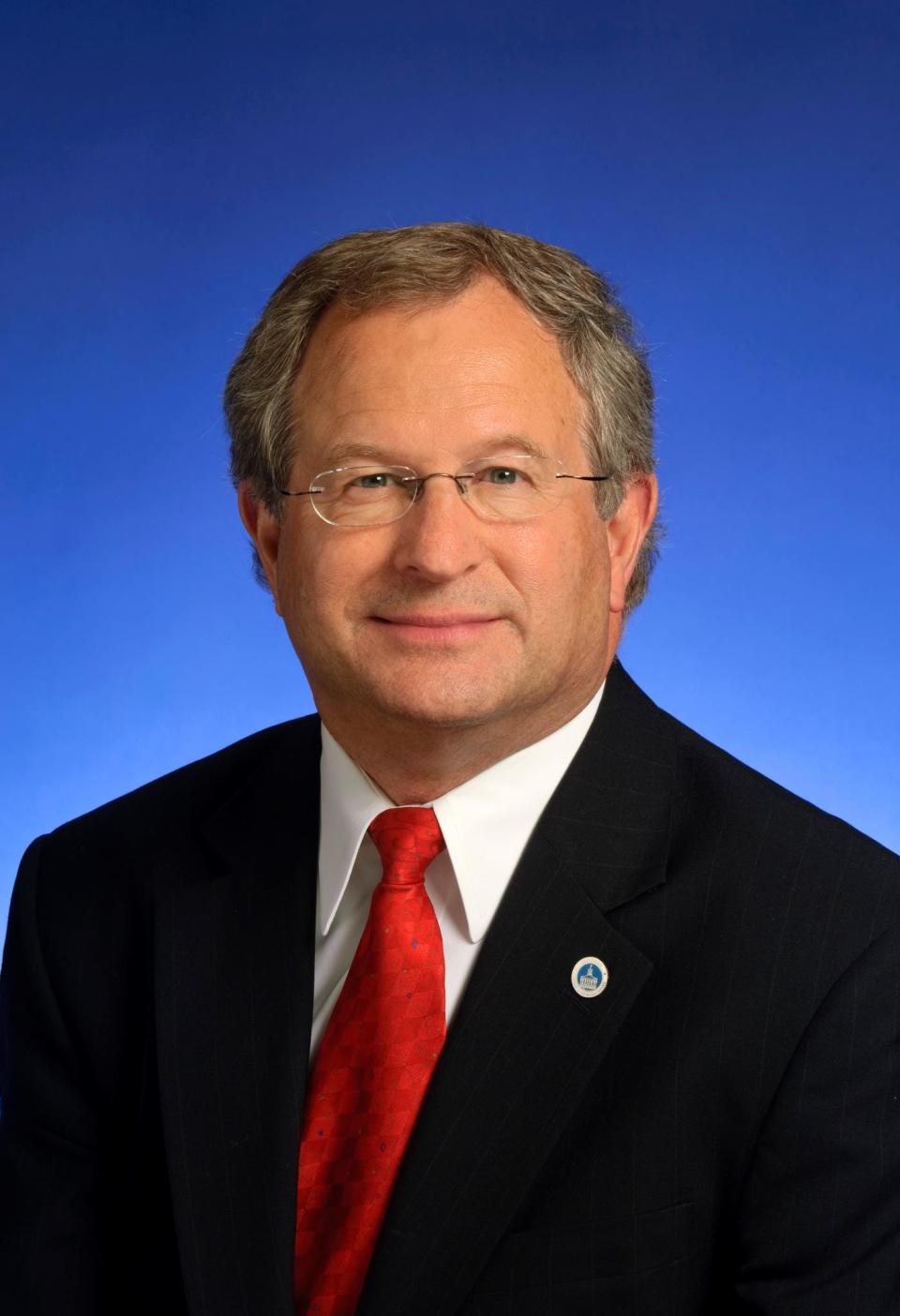
Further expansion of the program will be a fight.
The Tennessee Education Association has pledged to roundly oppose any effort to expand the ESA program, as will the members of Statewide Organizing for Community Empowerment.
"It is irresponsible and reckless to push a statewide voucher program that would jeopardize the foundation our state’s success is built upon," TEA President Tanya T. Coats said.
Mauricio Calvo, a member of the Shelby County Board of Education, said he agrees parents should have options to choose the best school to fit their child ― whether through district choice options or charter schools, which he says create competition and innovation. But privatization through a voucher system, he says, is a step too far.
"If we were to privatize public education, I know that we will lose accessibility for individuals, particularly the most vulnerable," Calvo told The Tennessean. "I think the voucher conversation is way out there. I'm afraid that it's driven by a political, social agenda that has less to do with what kids learn in the classroom, and more about ideologies."
White said expanding the program will spark more competition and innovation between schools.
"School systems: if you work hard and you perform for your students, parents are going to keep their kid in your school," White said. "If you don't, then give parents options to go somewhere else."
Pollack said expanding the program to Hamilton County this year has already "relieved a financial limitation" for participating families at Grace Academy in Chattanooga, making a new school option available that was previously unattainable.
Expanding school options has been a priority of Lee, something he continues to face fierce criticism over from Democrats and other public school advocates.
Lee's passion for offering parents more school options comes from his own experience. His own children attended public schools, private schools, and were homeschooled. Then, about 12 years ago, Lee began mentoring a child in East Nashville whose mother was in prison through an inner city youth program. He spent an evening each week for five years with the child, and helped his grandmother with the transfer process into a neighborhood charter school.
"I was forever inspired and moved by the fact that the right school for the right kid changes their life forever," Lee told The Tennessean. "We should give parents and children pathways to success by giving them a school that fits their individual needs... We should be considering not the school and not the system, but the child."
While in office, Lee has worked to expand school options by supporting charter school expansion and establishing a Public Charter School Commission to handle charter school appeals, which regularly overrules the decisions of local elected school boards. His administration has overhauled K-12 school funding, and put a new $1 billion into public education.
"We can have the best public school systems in the country and offer choice as well," Lee said. "We've seen in states like Florida, where there's wide variety of choices, their public school outcomes are significantly better than ours ― because, in part, it generates an improvement of the entire system."
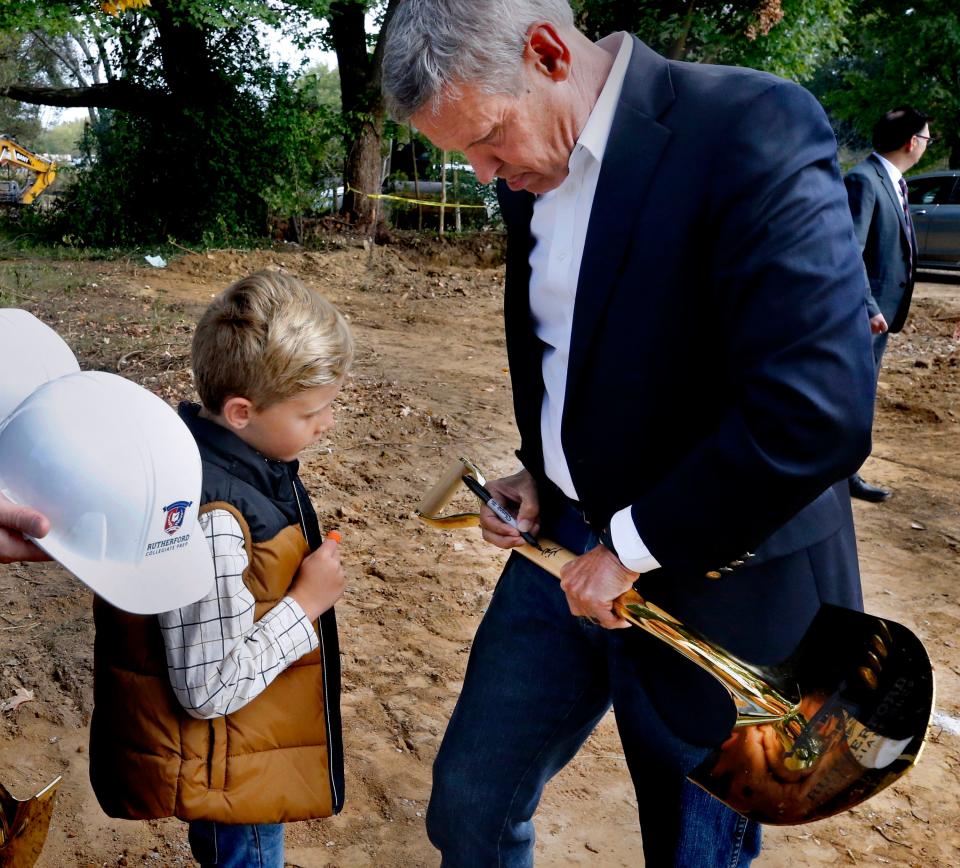
Warner said expanding the program would give parents looking for school alternatives "a lot more breathing room."
She said it opens up "a new world of possibilities for students who are forced to go to public school because they either cannot afford private school or are not in one of the counties that the ESA is offered in."
Back at Lighthouse, Alex said she’s thriving there. Talking with friends who attend Nashville public schools, she says she feels more mentally and emotionally supported by her teachers and staff than friends do.
“It’s been really uplifting,” Alex said. “My friends told me 'none of the teachers care about us, really. They're just doing their job, they're there to get paid.' I consider myself lucky to be able to go to this school… Being able to have people that I know are going to be there for me ― whether they necessarily have time or not ― is just a good thing.”
Vivian Jones covers state politics and government for The Tennessean. Reach her at vjones@tennessean.com
This article originally appeared on Nashville Tennessean: TN school vouchers: Families tout effort, critics worry over expansion

